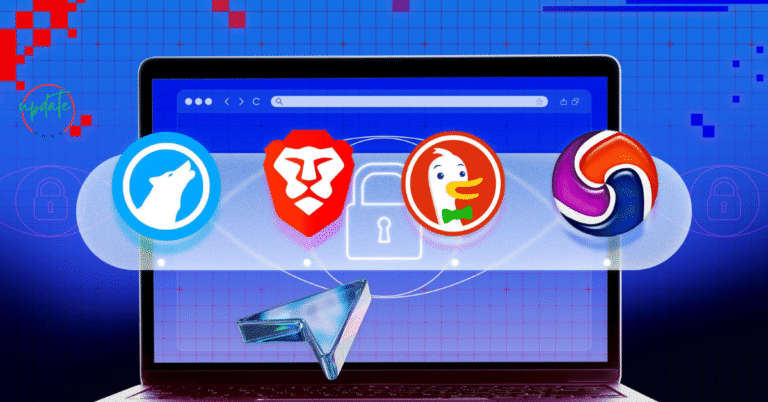Is It Safe to Use APKs? Myths vs Facts (2025 Guide)
Is It Safe to Use APKs? Myths vs Facts (2025 Guide) is a must-read for Android users who frequently install apps outside the Play Store. With the rise of modded and region-unlocked apps, many users are unsure whether APK files are safe or pose security threats. This guide separates the myths from the facts by examining common misconceptions about APKs, potential risks like malware or data theft, and how users can protect their devices. Learn the truth about APK safety in 2025 and discover practical tips for safe APK downloads without compromising your Android device.
What Are APK Files and How Do They Work?
Before we dive into myths, let’s understand what an APK actually is.
An APK (Android Package Kit) is the file format used by Android to distribute and install mobile apps. It contains all the necessary components of an app—code, resources, assets, certificates, and manifest files. While users typically install apps through the Google Play Store, APK files allow for manual installation of apps outside the Play Store.
This process is known as sideloading, and it’s perfectly legal. In fact, many developers and tech enthusiasts use APKs to test apps, roll back to older versions, or explore new features not yet released in their country.
Myth #1: All APK Files Are Dangerous
✅ Fact: Not all APK files are harmful—some are completely safe if downloaded responsibly.
One of the most widespread misconceptions is that APKs are inherently unsafe. While it’s true that some APK files can carry malware or spyware, this is not the case with all APKs. The key factor here is where you download the APK from.
✔️ Safe Practices:
- Download APKs from reputable websites like APKMirror, APKPure, or F-Droid.
- Check app signatures and file hashes to ensure they haven’t been tampered with.
- Use antivirus software to scan APK files before installing.
Many APKs on trusted platforms are verified and even uploaded by original developers themselves. Sideloading safe APKs is as secure as using the Play Store—if you’re careful.
Myth #2: APKs Are Always Illegal
✅ Fact: APK files are not illegal in themselves. It depends on how they’re used.
Not every APK breaks the law. It’s perfectly legal to install APKs that you’ve backed up from your own device, or to use open-source APKs or apps distributed directly by developers.
Problems arise only when APKs are used to bypass paid subscriptions, remove ads without consent, or pirate content, which can violate terms of service and copyright laws.
✔️ Legal Examples of APK Use:
- Downloading an older version of an app no longer available on Play Store
- Installing apps in regions where they’re geo-blocked
- Using open-source alternatives like F-Droid
So, while not all APKs are illegal, users should stay informed and avoid using them for pirated content or unethical modifications.
Myth #3: Using APKs Will Always Get You Banned
✅ Fact: APK use only leads to bans if it violates app policies or cheats in games.
Some users worry that using APKs—especially modded ones—can result in their accounts being banned. This is only true if the APK violates the terms of the service you’re using. For example, using hacked APKs in online multiplayer games (like PUBG Mobile or Free Fire) can trigger account bans.
On the other hand, using an APK to try a theme-based customization, a lightweight version of an app, or ad-blocking for personal use usually doesn’t lead to account suspension.
✔️ Safe Usage Tips:
- Avoid APKs that promise game cheats or free access to premium services
- Never use modded APKs with banking or sensitive data apps
- Stick to customization or utility mods only

Myth #4: You Need to Root Your Phone to Use APKs
✅ Fact: Rooting is not required to install or use most APKs.
Another common myth is that you need root access to install APK files on Android devices. This is false. Android allows users to sideload apps simply by enabling a setting called “Install unknown apps.”
Rooting is only required if you want to modify system-level files or install apps that need deep access to your operating system. For most users, APKs like modded YouTube or ad-free music players work without root.
✔️ Caution:
- Rooting can void your warranty and weaken device security
- Use rooted apps only if you understand the risks and know what you’re doing
Myth #5: APKs Steal Your Data Automatically
✅ Fact: APKs can access data—but only if you give them permission.
Like any app, APKs request certain permissions to function. However, not all APKs are created with malicious intent. The danger arises when users install APKs from sketchy sources that request unnecessary permissions—like access to SMS, contacts, or location—without a valid reason.
✔️ How to Protect Yourself:
- Check app permissions before installing
- Use tools like App Ops to manage permissions
- Scan the APK with malware detection apps such as Malwarebytes for Android
- Avoid installing APKs that ask for admin rights without explanation
How to Safely Use APK Files on Android
If you’ve decided to try APKs, here’s a safe and simple guide to install them:
📲 Step-by-Step Guide:
- Enable “Install Unknown Apps”: Go to Settings > Apps > Special access > Install unknown apps.
- Download from a trusted source like APKMirror or APKPure.
- Scan the APK file using antivirus software or built-in device protection.
- Install the APK by tapping on it in your file manager.
- Review permissions before launching the app.
Also, consider installing APKs in a sandboxed profile or virtual environment (like Shelter app) for better safety.
Also Visit This Free Movies and TV Shows
Final Thoughts: Should You Use APKs on Android?
So, is it safe to use APKs? The answer is: Yes—if you know what you’re doing.
- Not all APKs are dangerous, but it’s crucial to download from trusted platforms.
- Legal risks depend on the content of the APK and how it’s used.
- Security is in your hands—scan files, review permissions, and stay cautious.
By understanding the myths vs facts about APK safety, users can take full control over their Android experience without compromising privacy, legality, or device health.





